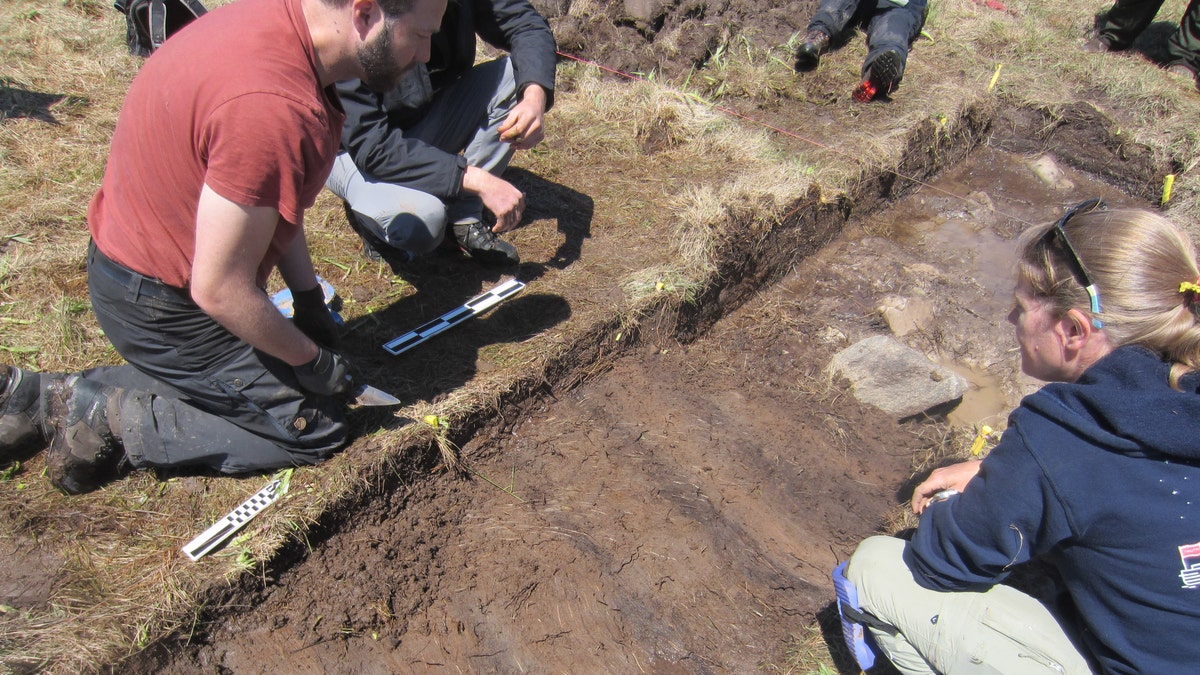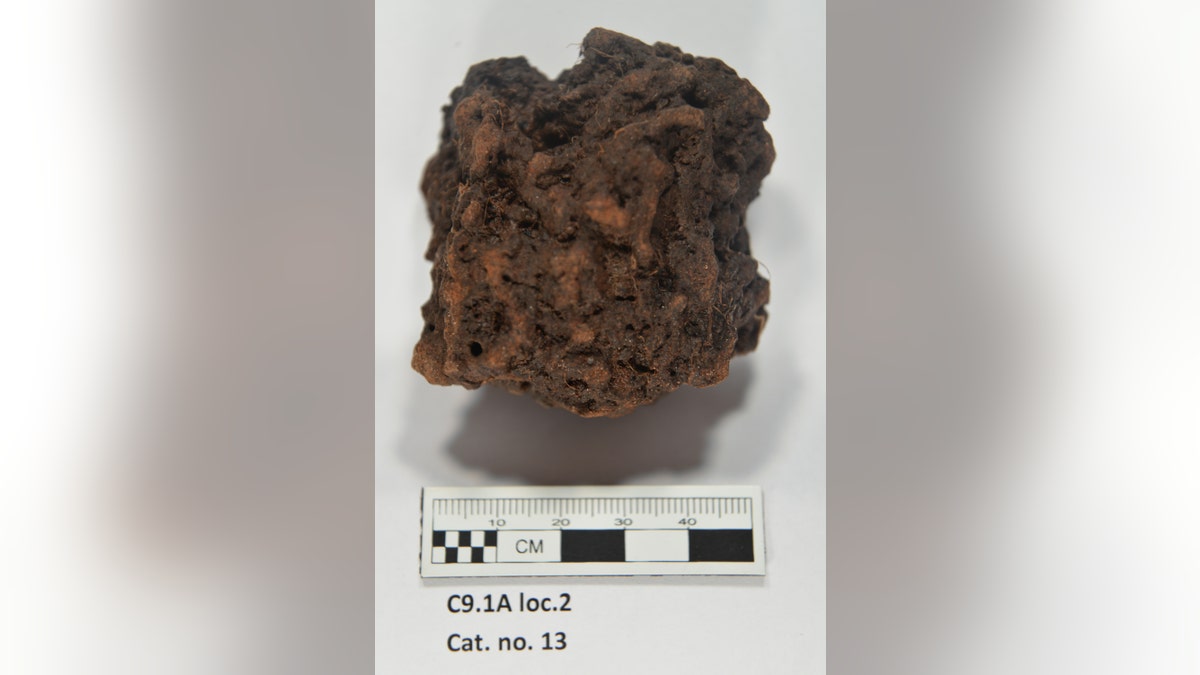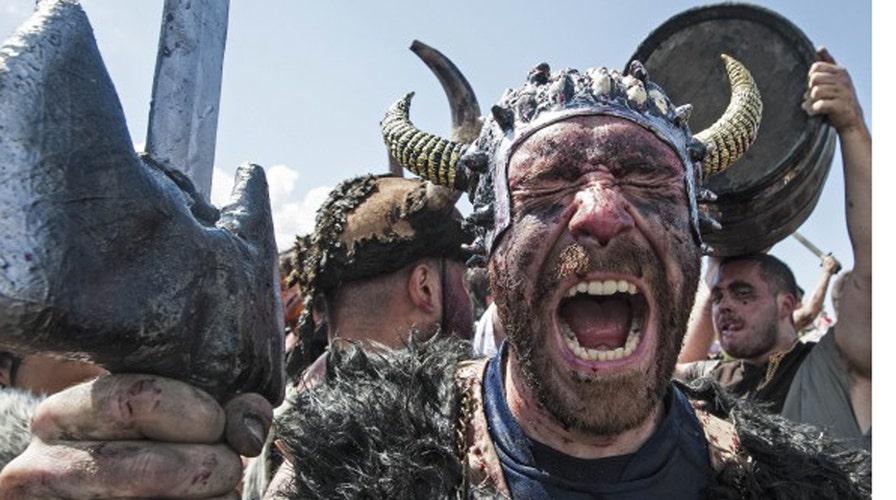New evidence could rewrite history of the Vikings
Crucial breakthrough by scientists suggests Vikings had more than one site in North America
Archaeologists have used satellite imagery to identify a site in Newfoundland that could be the first new Viking site discovered in North America in over 50 years.
Satellite imagery, magnetometer surveys, and a preliminary excavation of the site at Point Rosee in Southern Newfoundland last year could point to a potentially fascinating discovery.
The only other Viking site in North America was found in the 1960s at L’Anse Aux Meadows on the northern tip of Newfoundland, about 300 miles from Point Rosee.
Related: 2,500-year old slab unearthed, offers glimpse into the ancient Etruscan world
The archaeologists’ investigation will feature in "Vikings Unearthed," a special of PBS’s NOVA science series, co-produced with the BBC, that premieres online on April 4. The special will air on PBS April 6.

Douglas Bolender (left) and Sarah Parcak (right) discussing turf feature near boulder and probable bog iron ore roasting hearth/fire (Photo: Greg Mumford).
Archaeologist Sarah Parcak of the University of Alabama, Birmingham, used high-resolution satellite imagery to spot ruins as small as 11 inches buried below the surface, according to NOVA. Satellites positioned around 478 miles above the Earth enabled Parcak and her team to scan a vast section of America and Canada’s eastern seaboard.
Related: Experts doubt claims of 'hidden chambers' in King Tut's tomb
The satellite images, two magnetometer surveys, and preliminary excavations suggest “sub-surface rectilinear features,” according to the experts, who also identified possible evidence of ironworking in the form of roasted iron ore. Radiocarbon technology has dated the site to between 800 and 1300 AD.

One of the larger lumps of probable roasted bog iron ore, selected samples of which were analyzed by Dr. Thomas Birch and Dr. John Still (Photo: Greg Mumford) ( )
The project was led by Parcak and co-directed by Gregory Mumford, an associate professor at the University of Alabama at Birmingham and Frederick Schwarz, of Black Spruce Heritage Services. Douglas Bolender, an archaeologist at the University of Massachusetts, Boston, and historian Dan Snow also participated in the investigation.
Related: Colon cancer found in 18th-century Hungarian mummy
Experts will now be conducting further excavation and analysis of the site. “If confirmed as Norse by further research, the site will show that the Vikings traveled much farther in North America than previously known, pushing the boundary of their explorations over 300 miles to the southwest [of L’Anse Aux Meadows],” explained NOVA, in its press release.
Initial signs certainly hint at a fascinating discovery. “A ‘Norse’ date and ‘affiliation’ do look rather promising, at this still early stage in the project, but we simply need more work at this site and more specialist input and peer-reviewed data before being confidant in stating this as ‘fact’,” explained the archaeologists, in a report of their research.
Follow James Rogers on Twitter @jamesjrogers









































